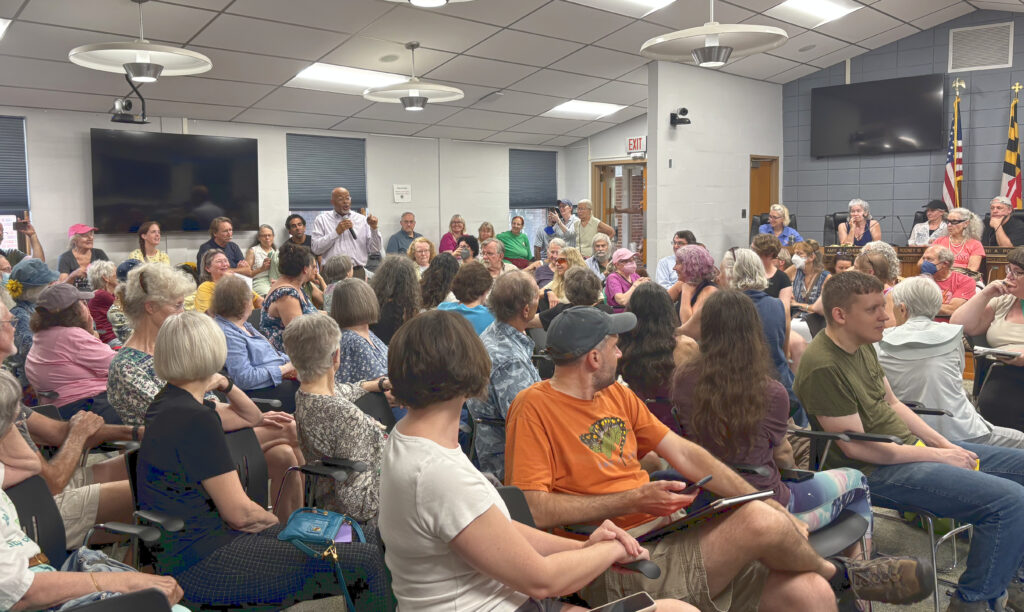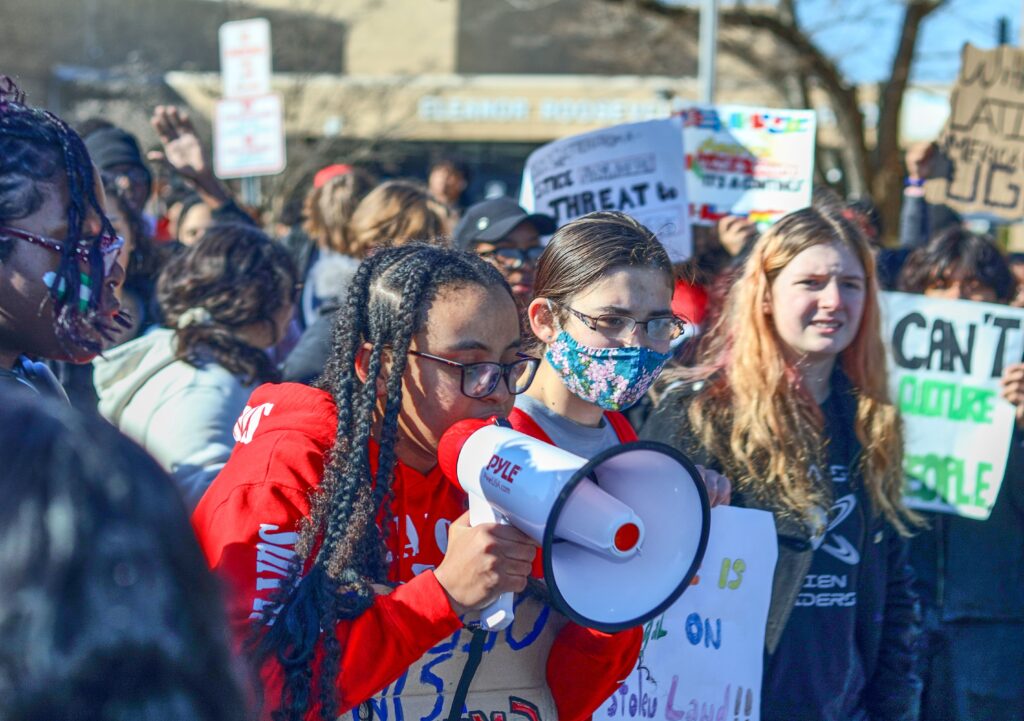Greenbelt residents met Saturday in the Greenbelt City Council chambers for an emergency meeting in response to the potential closure of the Beltsville Agricultural Research Center (BARC) (see story below).
The meeting was swiftly coordinated by residents via Facebook and email, resulting in a turnout of nearly 100 people, including several public officials, crowding the council chambers.
“I want to be clear that this meeting is a grassroots meeting,” said resident Aileen Kroll, who moderated the discussion, “and the purpose of this meeting is for us to talk about what it is that we want to see happen in very concrete ways.”
The closure of BARC was announced July 24 by Secretary of Agriculture Brooke Rollins, who said that three Department of Agriculture office spaces in the Washington, D.C. area and BARC would be vacated for the sake of efficiency, with plans to reduce the number of staff and to relocate services to various cities such as Raleigh, N.C., and as far away as Salt Lake City, Utah.
The center, established in 1910, is officially named after Henry A. Wallace, a former secretary of agriculture and also former vice president under President Franklin D. Roosevelt. It houses the Abraham Lincoln Building of the National Agricultural Library and conducts a wide range of agricultural research for plant and animal science, food safety, climate change and a number of other subjects.
Throughout the meeting, a chief concern of residents was to whom or to what entity BARC land might be sold off, and what it would then be used for. Several expressed fear that the land might be used for data centers or the Northeast Maglev project, which county and state officials have shown interest in developing.
Mary Cook, from the office of Prince George’s County Council Member Tom Dernoga who represents District 1, which includes Beltsville, said that Maryland legislation requires the county’s District Council (the County Council when deciding zoning and land use) immediately place a zoning classification of agricultural, reserved open space upon any sold BARC land.
But that protection was questioned by Greenbelt City Councilmember Rodney Roberts, who cited the 2018 authorization of BARC land transfer from USDA to the Department of the Treasury to build a Bureau of Engraving and Printing currency production facility.
Although the facility’s construction was halted in January by the U.S. Army Corps of Engineers which cited budgetary constraints, resident Kiki Theodoropoulos noted that the transfer between agencies served as a way to work around zoning laws.
Roberts insisted that investing in legal resources would be the ultimate strategy to fight BARC closure, and said, “If you think that the zoning of the property is going to save it, you’re ignoring what’s happened in the past few years.”
U.S. Representative Glenn Ivey (Md. District 4), who represents Greenbelt, made a surprise appearance halfway through the meeting and said that the focus right now should be to prevent the movement of BARC employees, as federal offices cannot be sold until their staff is vacated.
He cited the closure of the USAID building, where the staff’s removal made it possible to dismantle the agency, even though the agency could not be dissolved or its offices sold without congressional approval.
Ivey thus argued that legal action such as that by federal workers against President Donald Trump’s administration would be critical, and said that he’s been in contact with several unions such as the American Federation of Government Employees.
Ivey and others at the meeting also stressed the importance of forming alliances across party lines and with interest groups outside of the Beltsville area.
Residents noted Arkansas Senator John Boozman, chairman of the Agriculture, Nutrition and Forestry Committee, as someone who has been outspoken about his displeasure with the threatened closure of BARC.
Ivey pointed to Congressman Andy Harris, who represents Maryland’s largely rural Eastern Shore and is the chair of the Agriculture Subcommittee on Appropriations, as someone to seek as an ally due to his constituency’s shared interest in the research done at BARC.
Resident Darien Boggs said that advocates for BARC should attempt to reach farmers, who as a bloc have consistently been able to make the Trump administration backtrack on policy.
“Those people don’t want to hear that the research that’s helping them is going to get eliminated,” Boggs said.
Greenbelt Mayor Emmett Jordan, who attended the meeting along with Councilmembers Roberts, Danielle McKinney and Jenni Pompi, said that he attended a “Four Cities” meeting on July 24 with College Park, New Carrollton and Berwyn Heights to address the issue.
Jordan said that there is a unified, concerted local effort to determine what action to take. “Rest assured that we are working together.”
Greenbelt architect Matt Dirksen recalled when he first moved with his wife to Greenbelt in the early 2000s, residents donned T-shirts saying “Keep It Wooded” in defense of the Forest Preserve, and found the community effort inspiring. He also noted that part of the original “belt” of Greenbelt was the land of BARC itself.
“I came here because I want to preserve the “belt” of Greenbelt. That’s what the BARC is. So let’s work to keep the BARC,” he said.
Will Hammann is a University of Maryland student at the Philip Merrill College of Journalism interning with the Greenbelt News Review.



